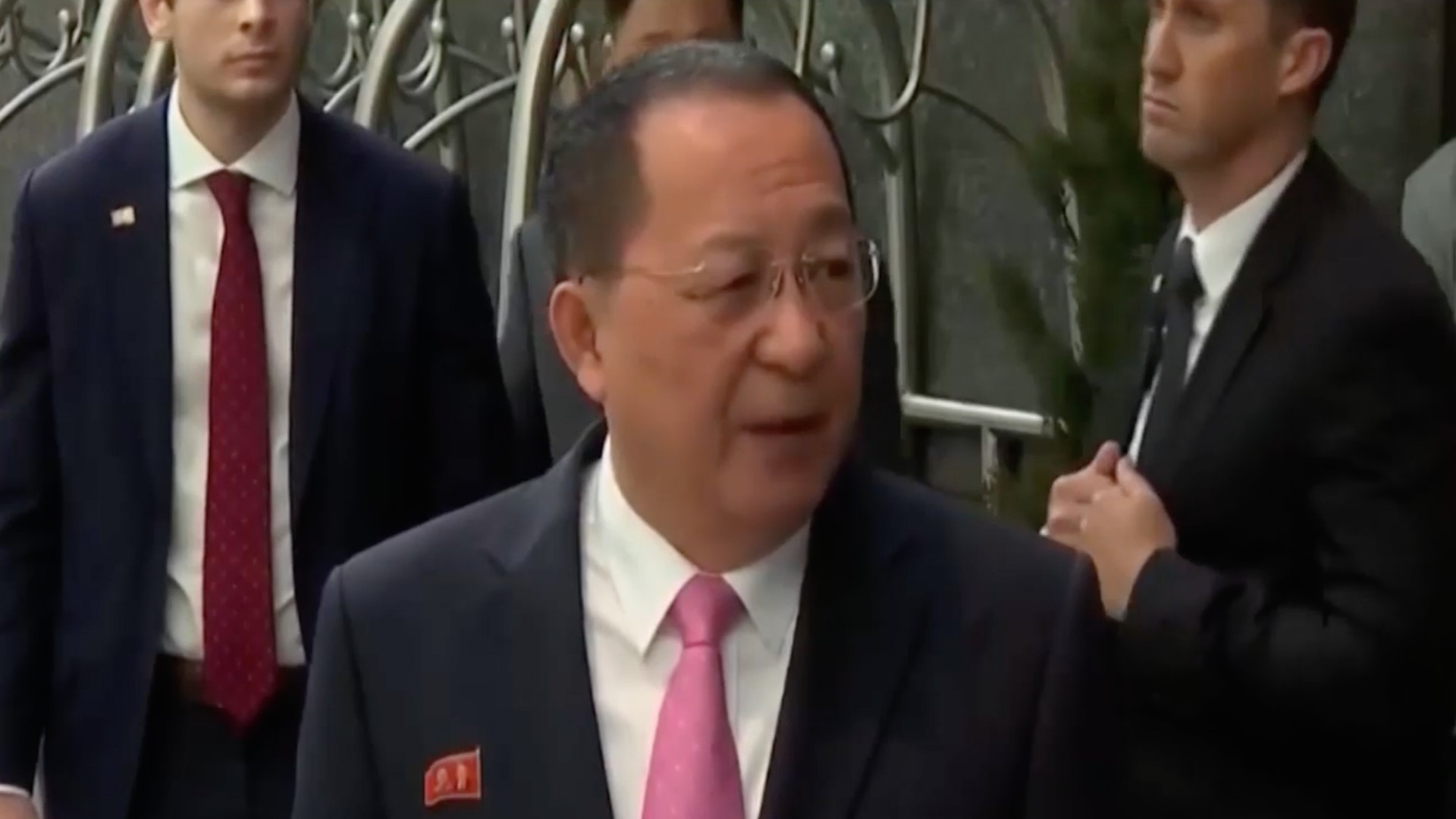Canadian Press
It has been billed as a key meeting responding to North Korea’s missile tests, but as foreign ministers from 20 countries including Canada, the U.S., and South Korea gather in Vancouver this week, the absence of China and Russia means a significant break-through on the nuclear issue is unlikelyWith North Korean leader Kim Jong-Un earlier this month calling his country’s weapons program a “reality, not a threat” and warning that “the nuclear button is always on my table” amid a Twitter spat with U.S. President Donald Trump, the geopolitical stakes are high.The conference hosted by Canada’s foreign minister Chrystia Freeland and U.S. Secretary of State Rex Tillerson could, however, increase tensions on the Korean Peninsula as Russia and China, key countries involved in negotiating with North Korea, have expressed their displeasure at being excluded from the ongoing diplomacy.“We consider these efforts and this meeting to be destructive," Sergey Lavrov, Russia’s Foreign Minister, told a Moscow briefing ahead of Tuesday’s summit.‘VERY DIFFICULT’Russia along with China, considered North Korea’s key ally, backed new United Nations Security Council sanctions in December blocking much of North Korea’s access to crude oil and remittances from its workers abroad after Pyongyang tested an intercontinental ballistic missile.U.N. sanctions capped North Korea’s crude oil supplies at 4 million barrels per year and diplomats meeting in Vancouver on Tuesday will discuss how to better enforce trade restrictions. “I think it’s very difficult preventing China and Russia from continuing to support the North Korean regime through various means,” said Charles Burton, a former counsellor at the Canadian embassy in Beijing.“Certainly we could be harassing ships that provide oil to North Korea,” Burton told VICE News. “But I am not convinced we could actually cause that regime to be squeezed to desperation if the Russians and Chinese want to continue to keep that regime alive to secure their own purposes.”‘EASILY MANIPULATED’ NATIONSTechnically, the U.S. and South Korea are still at war with North Korea as the Korean War ended in 1953 with a truce rather than a peace treaty.“It's strange that many of the countries invited [to Vancouver] are not stakeholders in the situation, but those who participated under UN Command during the Korean War (1950-53),” according to an editorial in China’s pro-government Global Times newspaper. “Washington seems to be reviving the long-forgotten multinational military alliance.”Most of the countries participating in the Vancouver meeting backed the South Korean side in the Korean War.“Among the invitees (to the meeting) are traditional US allies like Britain, Australia and New Zealand, and nations that have no relation to the nuclear issue but can be easily manipulated by the US, such as Ethiopia and Columbia (sic),” according to the Global Times, which is considered to represent hawkish positions from China’s military establishment.Russia and China want countries with military forces on the Korean peninsula to “freeze any confrontational actions” like missile launches or large-scale military exercises, Lavrov said, criticising the U.S. for holding military drills with South Korea and Japan amid the nuclear tensions.TILLERSON’S TROUBLESPart of the reason for the gathering is linked to internal U.S. politics “largely about supporting Rex Tillerson against more hawkish elements in the Trump Regime,” said Burton, the former Canadian diplomat.
“I think it’s very difficult preventing China and Russia from continuing to support the North Korean regime through various means,” said Charles Burton, a former counsellor at the Canadian embassy in Beijing.“Certainly we could be harassing ships that provide oil to North Korea,” Burton told VICE News. “But I am not convinced we could actually cause that regime to be squeezed to desperation if the Russians and Chinese want to continue to keep that regime alive to secure their own purposes.”‘EASILY MANIPULATED’ NATIONSTechnically, the U.S. and South Korea are still at war with North Korea as the Korean War ended in 1953 with a truce rather than a peace treaty.“It's strange that many of the countries invited [to Vancouver] are not stakeholders in the situation, but those who participated under UN Command during the Korean War (1950-53),” according to an editorial in China’s pro-government Global Times newspaper. “Washington seems to be reviving the long-forgotten multinational military alliance.”Most of the countries participating in the Vancouver meeting backed the South Korean side in the Korean War.“Among the invitees (to the meeting) are traditional US allies like Britain, Australia and New Zealand, and nations that have no relation to the nuclear issue but can be easily manipulated by the US, such as Ethiopia and Columbia (sic),” according to the Global Times, which is considered to represent hawkish positions from China’s military establishment.Russia and China want countries with military forces on the Korean peninsula to “freeze any confrontational actions” like missile launches or large-scale military exercises, Lavrov said, criticising the U.S. for holding military drills with South Korea and Japan amid the nuclear tensions.TILLERSON’S TROUBLESPart of the reason for the gathering is linked to internal U.S. politics “largely about supporting Rex Tillerson against more hawkish elements in the Trump Regime,” said Burton, the former Canadian diplomat. Tillerson has favored diplomacy with North Korea, while Trump has made military threats. Countries including South Korea, Canada and Japan back Tillerson’s approach and they want to see him keep his job, Burton said, amid reports that Trump has considered firing the former oil executive over their different views on international affairs.“If the meeting fails, it strengthens Trump’s hand,” Burton said, as it will be seen as evidence to U.S. hardliners that diplomacy doesn’t work when dealing with North Korea.Regional talks, however, have seen some progress in recent weeks. South Korea will host the Winter Olympics in February and discussions are underway about North Korean pop group Moranbong Band, an all female ensemble who perform in white military uniforms, of playing at the games following the first face-to-face meeting between senior North and South Korean officials in two years.
Tillerson has favored diplomacy with North Korea, while Trump has made military threats. Countries including South Korea, Canada and Japan back Tillerson’s approach and they want to see him keep his job, Burton said, amid reports that Trump has considered firing the former oil executive over their different views on international affairs.“If the meeting fails, it strengthens Trump’s hand,” Burton said, as it will be seen as evidence to U.S. hardliners that diplomacy doesn’t work when dealing with North Korea.Regional talks, however, have seen some progress in recent weeks. South Korea will host the Winter Olympics in February and discussions are underway about North Korean pop group Moranbong Band, an all female ensemble who perform in white military uniforms, of playing at the games following the first face-to-face meeting between senior North and South Korean officials in two years.
Advertisement

Advertisement

